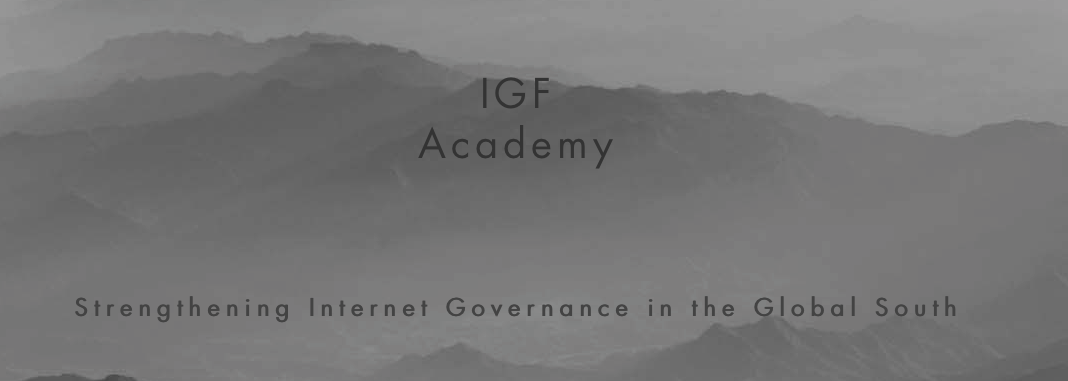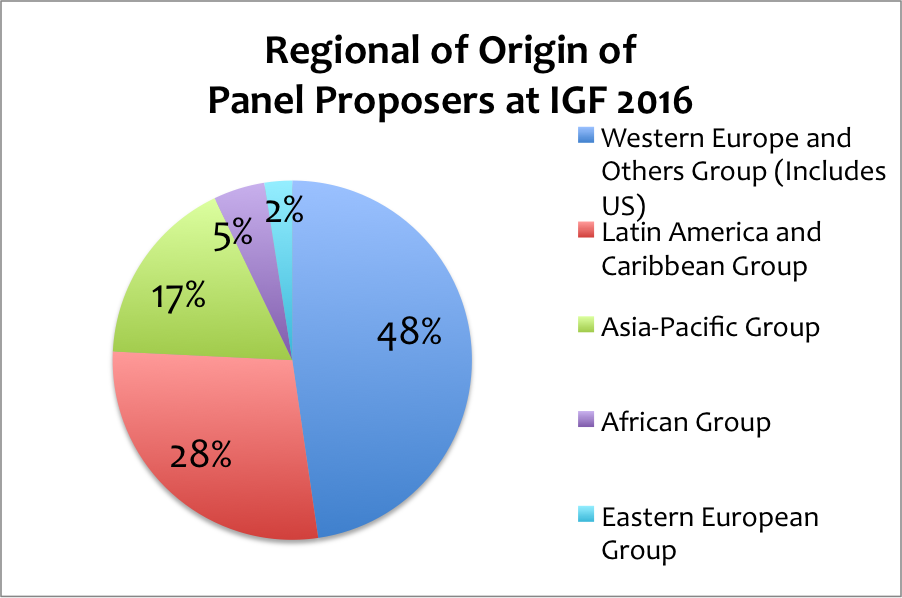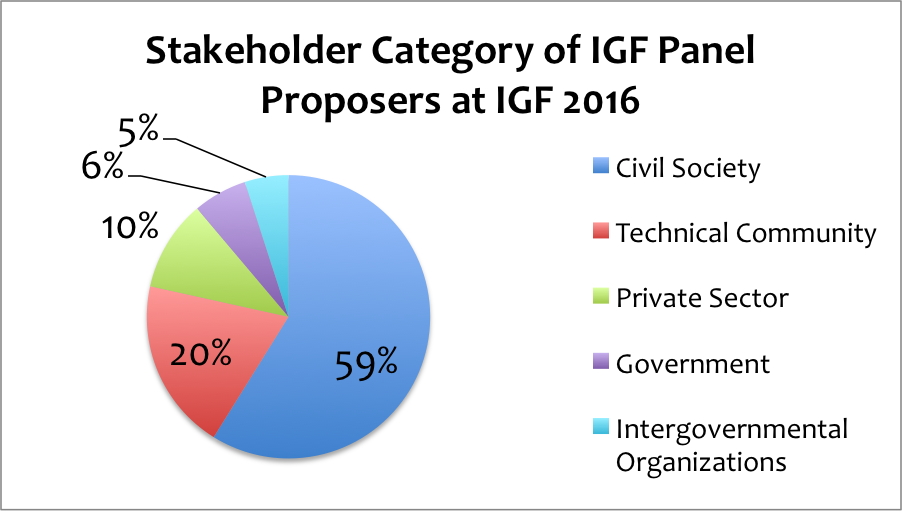Seeing as the Internet is now, in many countries, the primary conduit for the circulation of independent journalism, how it is governed will impact both media development and press freedom. Will global Internet policies foster the free circulation of information? Will they be structured in ways that enable censorship and surveillance? These are important questions that impact people around the globe. However, to date, individuals and organizations from countries in the Global North have dominated the Internet governance decision-making processes. Indeed, the relative paucity of participation by groups from developing countries creates a situation in which policies may be created that do not take into account the unique circumstances of developing countries.
Facilitating Participation of Developing Countries at the Internet Governance Forum
In hopes of facilitating more diverse participation in global Internet governance, this week CIMA partnered with iRights, a Germany-based digital rights NGO, on a workshop for individuals from developing countries that was aimed at improving their capacity to engage in international Internet governance bodies. iRights has been working on a larger initiative in partnership with the Association for Progressive Communications and LIRNEasia, called Internet Governance Forum Academy (IGF Academy), which seeks to develops the skills of individuals in developing countries to create and sustain national Internet governance forums. The hope is that these national multistakeholder gatherings will enable societies in developing countries to more actively engage in Internet governance discussions on the global level.

CIMA and IGF Academy Fellows discuss the intersection of Internet governance and freedom of expression.
The joint workshop included both CIMA and IGF Academy Fellows, and focused on issues of freedom of expression and media freedom. It included participants from Thailand, Namibia, Bhutan, Togo, Sri Lanka, Burma, and South Africa, among other countries. The training was held in Guadalajara, Mexico, which later in the week will host the annual Internet Governance Forum (IGF). The IGF is an annual multistakeholder meeting where representatives from civil society, the private sector, governments, and academia gather to discuss the biggest Internet issues. Thus, participants will be able to put their knowledge and skills to work advocating for beneficial Internet policies.
While the IGF is organized under the auspices of the United Nations, it is not a rule-making body. Rather, it is a forum where different stakeholders can discuss problems and find solutions that work for all stakeholders. The underlying logic of this multistakeholder dialogue is that only when policies address the concerns of all stakeholders will they be truly beneficial to societies. The broader consensus that can be reached on Internet governance, the more likely it is to succeed in the long run.
The Participation Problem – A Challenge of the Multistakeholder Model
While the IGF is meant to be a global, multistakeholder meeting that is open to anyone who wants to attend, in practice participation is still dominated by people from Western, developed countries. This is evident when looking at the region origins of organizations that proposed panels at this year’s IGF. It is important to note that these statistics merely represent interest in hosting a session, not the actual panels that were accepted by the Multistakeholder Advisory Group, which makes final decisions about the IGF’s program. Nonetheless, it is clear that the imbalance in organizations from certain regions proposing sessions is bound to have an impact in the type of policy discussions that will take place at the IGF.
Over 48 percent of panel proposers came from the Western Europe and Others Group (WEOG), which includes the US. While the strong showing of proposers from Latin America is great, it is probably because this year’s IGF is being held in the region. More work needs to be done to make sure that groups from all around the world are able to both participate and to help set the agenda by proposing panels and discussion groups at the yearly gathering.
The private sector and governments and are also underrepresented at the IGF. The statistics from this year’s IGF show that 59 percent of panel proposals came from civil society organizations, while only 10 percent and 6 percent of proposals came from the private sector and government, respectively.
While strong civil society participation is important, it is impossible to truly engage in multistakeholder governance without strong participation by all stakeholders. No doubt, since IGF is not a rules-making gathering, many private companies and governments feel less impetus to get involved. Given their dominant roles in shaping the future of the Internet, should their participation become even more limited in the future, this may endanger the legitimacy of the forum.
Strengthening Multistakeholder Governance Through Diversification
For those who have closely followed the IGF over the years, the paucity of developing country participation in Internet governance is not surprising. Nonetheless, it remains one of the largest stumbling blocks toward living up to the ideals of global multistakeholder governance. Given the fact that the challenges facing media systems in developing countries often differ significantly from those in highly developed countries, this lack of input makes it potentially much harder to develop policies that will benefit media development.
The link between Internet governance and an enabling environment for media development is becoming more evident. Indeed, this is an area of analysis and research that we CIMA will be focusing on in the upcoming year. If you’re interested in following CIMA’s work, please sign up for our Digital Media Mashup, which is a weekly email newsletter that includes the latest news and research on all topics related to digital media.
Daniel O’Maley is the Associate Editor at the Center for International Media Assistance.




Comments (0)
Comments are closed for this post.